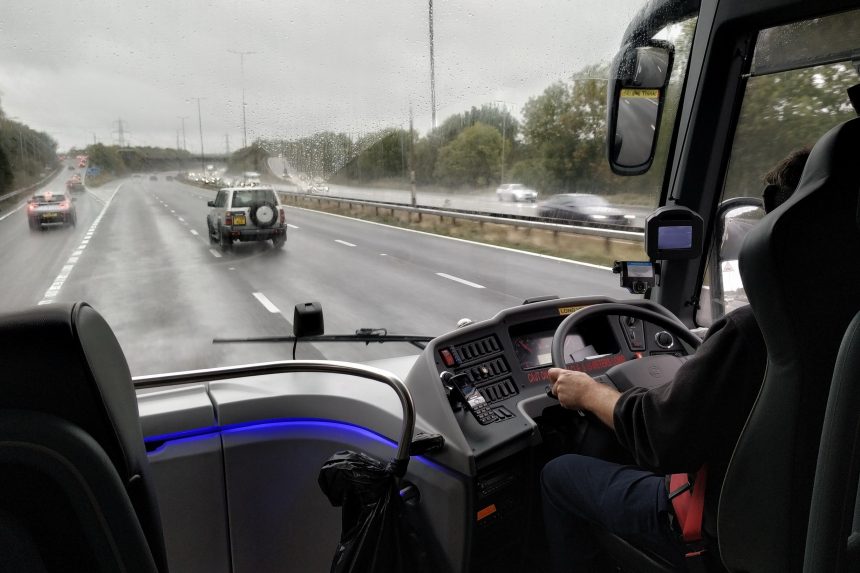The Department for Transport (DfT) has opened a consultation on proposed changes to restrictions on vocational drivers that include partial removal of the 50km, regular service limit that is imposed on the youngest PCV licence holders.
Dropping that in its entirety has long been called for by some in the coach and bus industry, with members of the former sector having noted that the limit as it stands largely precludes recruiting school leavers into driving roles through an inability to fully utilise them.
However, the DfT proposal does not support fully removing all the restrictions on 18- and 19-year-old category D licence holders and that they may still only undertake regular and special regular services (as defined in legislation) under the revised position, although scope is given for respondents to put forward alternative proposals.
The Confederation of Passenger Transport (CPT) advocates extending the proposed change to non-regular services. It accepts that there may be some legal complexities in achieving that, but will work with DfT “to try to resolve these and help the industry to recruit mature and enthusiastic young people for the full range of passenger driving roles.”
Also contained in the consultation is a proposal that prospective PCV and HGV drivers are permitted to start theory and off-road training immediately, rather than having to wait for a provisional licence.
The Amendments to Licensing Restrictions: Bus, Coach and Heavy Goods Vehicles consultation will run for eight weeks to 5 June, but Under-Secretary of State for Transport Guy Opperman has told routeone he is “absolutely confident” that the proposals will progress.
A government response is expected within 12 weeks of the closure date. If support is received, the measures will be implemented as soon as parliamentary time permits.
Mr Opperman says that the proposed changes have “unquestionably” come about thanks to engagement with the industry. He acknowledges that a shortage of drivers exists and how the pathway into PCV driving as a career choice for young people is currently constrained by the 50km restriction.
DfT points to data that the coach driver shortage currently stands at 13.6%, and is 6.6% for bus drivers, as a further reason for the proposed changes. Mr Opperman adds that the plans “could help to get younger talent into transport, encouraging diversity in the sector.”

Stanley Travel has welcomed the proposals, with Director Andrew Scott saying that the County Durham business is “always looking to attract younger coach and bus drivers to our sector.”
Adds Mr Scott: “We fully welcome these proposals, which would remove the entry barriers to the industry, help us to run more service to provide customers with greater choice, and open up fantastic careers as a coach driver for young people.”
RHA has also welcomed the proposed changes. Director of Public Affairs and Policy, England, Declan Pang says that the Association “has long supported proposals to attract younger people into the [driving] role and address the ageing coach driver workforce, which is a barrier to the sector’s growth.
“The age restrictions have constrained the sector’s ability to attract young people and, considering that someone can drive a HGV from 18, puts the coach industry at a disadvantage.
“These proposals could improve prospects for coach operators, and we look forward to seeing them implemented.”
Notwithstanding its comments on the non-regular service restriction remaining in place, CPT has taken a similar view. Chief Executive Graham Vidler notes: “Allowing new recruits to get on with off-road training while awaiting their provisional licence will ensure that more trainees stay the course and become safe, qualified coach or bus drivers.
“As 18-year-olds are allowed to drive an articulated lorry already, there is a clear case for allowing them also to drive all types of coach and bus services.”
Although the proposed partial removal of the 50km restriction has been welcomed, the wait for expansion of the skills bootcamp approach to training for category D licence acquisition continues.
Mr Opperman acknowledges that such an action “has been raised with DfT” by the coach and bus industry. “We are looking at the policy and reviewing the situation,” he adds. An eye is also being kept on EU work on reform of hours regulations for coach drivers, but following that path in the UK is not currently being worked on by the Department.
Consultation document here.



























